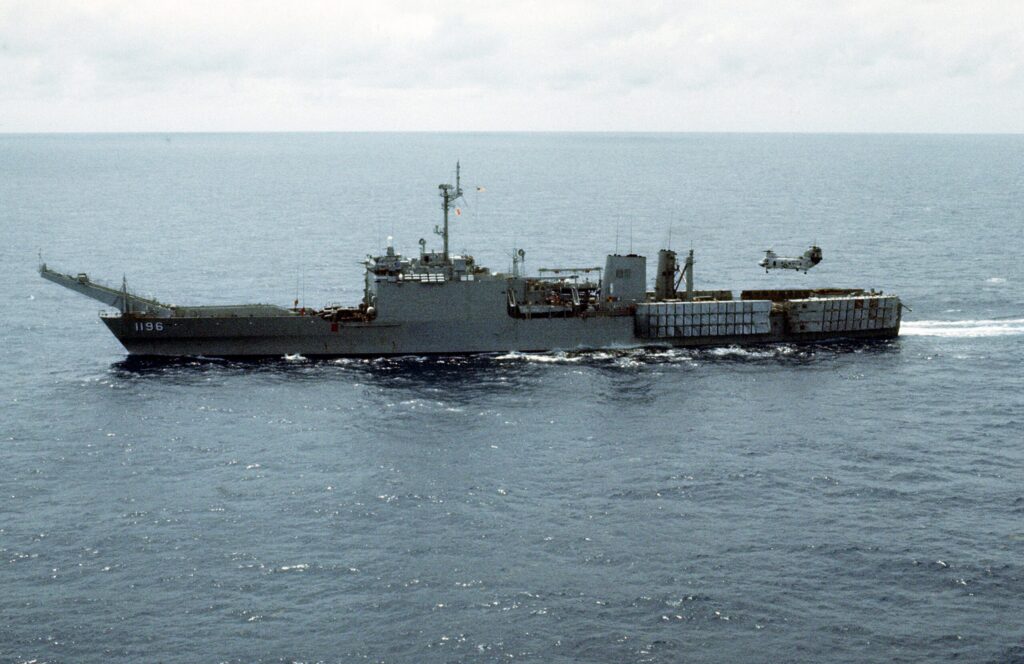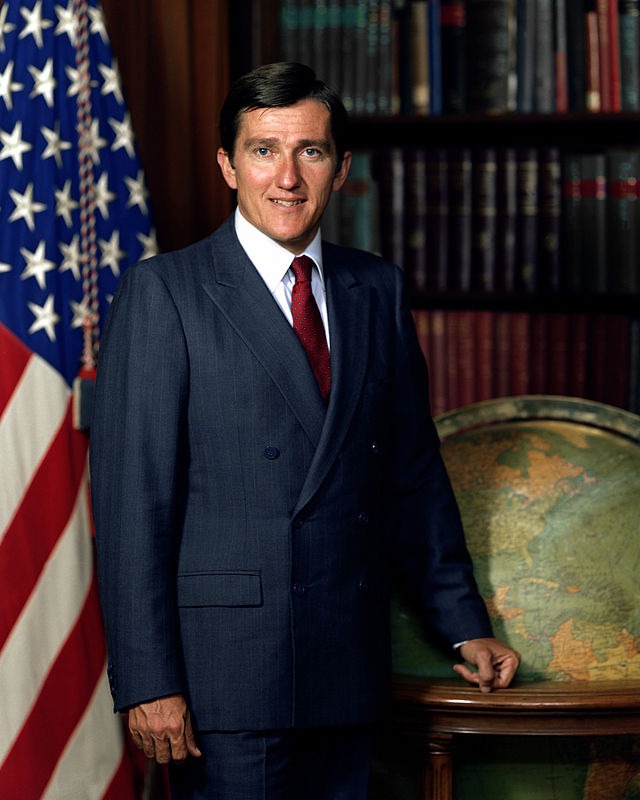By David F. Winkler, Ph.D. Staff Historian
Ten years ago, delegations from the U.S. and Russian Federations met at the Naval Observatory to commemorate the 40th anniversary of the signing of the Incidents at Sea Agreement (IncSea) on May 25, 1972, as part of the Nixon- Brezhnev Summit held in Moscow. After a historical overview provided by this author and reflections provided by the former Secretary of the Navy – John W. Warner – who negotiated the accord representing the United States, shot glasses were filled and gulps of vodka marked a festive occasion.
Now with the fiftieth anniversary falling on the first anniversary of the passing of Warner, with a ground war raging in Ukraine, don’t expect any recharging of shot glasses.
Over the half-century since rules were implemented to tamp down aggressive behaviors between the two fleets on and over the high seas, relations between the Soviet Union/Russia and the United States have had their ebbs and peaks. As commentators have noted, this is not the first time that the continental land power has invaded a neighboring state as illustrated by the movement of Soviet armored columns into Afghanistan in December 1979.
While American satellites tracked the progress of the Soviet armed aggression into Central Asia, Naval Intelligence still monitored Soviet Navy activities closer to the homeland as the Soviets implemented a bastion strategy to protect their ballistic missile submarine fleet. Sent in the Spring of 1980 to observe Soviet antisubmarine warfare exercises in the Barents Sea, the USS Harlan County attracted much-undesired attention. The United States claimed that Soviet ships and aircraft violated the provisions of the IncSea accord on six occasions between April 11 and 18, 1980. In Washington, Navy officials protested to Soviet Naval Attaché Rear Admiral Sakulkin. After two additional incidents on 20 April and 26 April, the CNO Admiral Thomas B. Hayward contemplated postponing the planned annual review, scheduled to occur in Moscow on May 12. In the wake of Afghanistan, the Office of the Secretary of Defense/ International Security Affairs (OSD/ISA) had already contemplated postponement or moving the review to a neutral site such as Vienna. Then on April 29, Vice Adm. S. R. Foley, Jr., sent a letter to Assistant Secretary of Defense for International Security Affairs David E. McGiffert recommending OSD approval should Hayward desire a ninety-day postponement of the annual review. OSD approval was not forthcoming. Legal Advisor M. J. Cifrino argued that such action could cause the Soviets to claim that the accord was breached and would have to be renegotiated. Furthermore, Cifrino argued that the annual review served as a mechanism to seek redress for violations, and that forum needed to be used in this case. Cifrino’s logic won the day. Two weeks later, the American delegation was in Moscow to discuss the Harlan County and other incidents.

The 1980 meeting, however, differed from previous annual reviews. Citing recent events that had led to a downturn in U.S.-Soviet relations, the Americans declined to participate in extravagant social activities outside the capital. As Rear Admiral Robert P. Hilton recalled, “Their Vice Chief would host a dinner for our people, and our ambassador hosted a return reception.” One U.S. delegation member recalled that their Soviet Navy counterparts were miffed at this change in the U.S. posture. Reflecting the parochialism of their service, the Soviet delegates kept pointing out that it was not the Soviet Navy that invaded Afghanistan!
After the changeover to the Reagan Administration, the bilateral IncSea reviews continued using the “saltines and seltzer” format. In contrast to the 1979 talks at the National War College, the 1981 talks were held at the Navy and Marine Corps Reserve Center at Anacostia. Whereas in 1979 the visiting Soviets toured New York and Newport, the 1981 group visited the Smithsonian and Hechinger’s Home and Garden Center in Tysons Corner, Virginia. In 1982, Secretary Weinberger’s instructions to the delegation forbade overnight travel outside Moscow. Still, the talks held in 1981, 1982, and 1983 were cordial. Three weeks after the 1983 meeting, Secretary of the Navy John F. Lehman held a news conference, brought up the recent review, and gave the following assessment: “It’s worked very well.” He noted that when certain types of Soviet harassment began to appear as a pattern of operations, the issue would be brought up at the next annual meeting “and those practices stopped.” Lehman added: “Similarly, they’ve expressed some concerns about the way we join up on their bombers that come out to run against our exercises and we’ve discussed them and changed procedures to accord with them.”
Clearly, the Russian invasion of Ukraine initiating the most brutal armed conflict in Europe since World War II has placed unimaginable strains on relations between Russia – and the Western coalition that could justify the withdrawal of a number of the bilateral IncSea accords signed throughout the late twentieth century starting with the U.S.-USSR agreement of 1972. However, it’s for scenarios just as this that the negotiators of the accord had envisioned – to prevent a misstep by some ship or aircrew commander during a time of tension that could be mistaken for an act of war. As Secretary of Defense Lloyd Austin recently illustrated with his recent hour-long discussion with his Russian counterpart, it’s important to keep channels of communication open. With that observation, it’s noteworthy to mark the fiftieth anniversary of the signing of IncSea with gratitude to those who recognized the potential consequences of unintended confrontations at sea and took action to mitigate hostility-provoking actions – and that is a good thing – more so than the downing of vodka shots.
Dr. Winkler is the author of Incidents at Sea: American Confrontation and Cooperation with Russia and China. 1946-2016. (Naval Institute Press, 2017).


